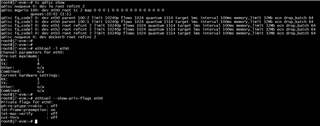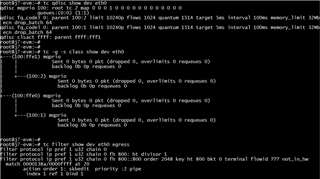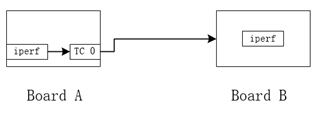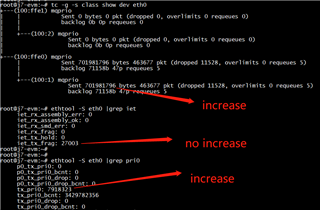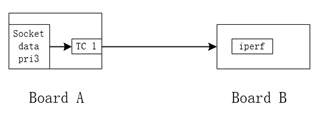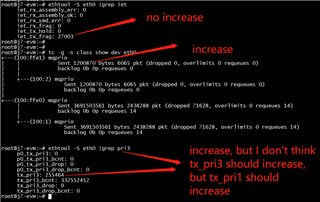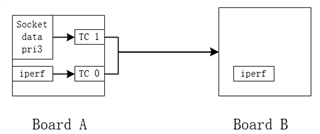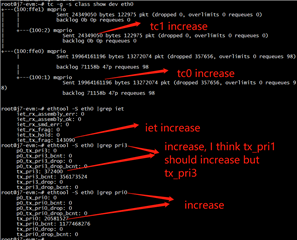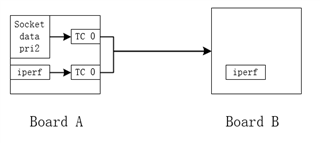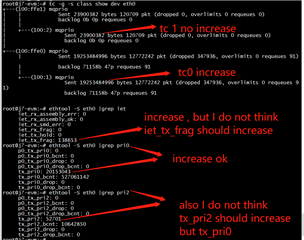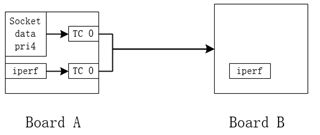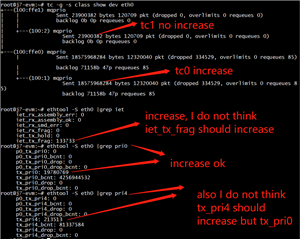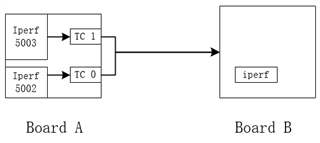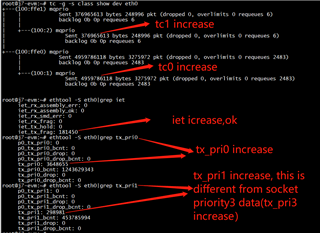1. We tested the IET functionality on the TDA4 board, and the configuration is as follows:
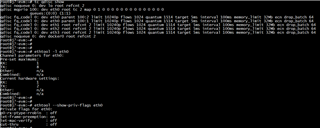
And we send data through iperf, and at the same time we send data through sockets in user space, Iperf commands are as follows
iperf3 -c 192.168.100.20 -u -b500M -l1472 -t300
iperf3 -s
2.测试结果如下:
1): We sent data from user space via socket(priority 3), then through "ethtool -s eth0 | grep iet" command found that "iet_tx_frag" counter is not incremented
2)We sent data from user space via socket(priority 3) and find that "tx_pri3" counter increases as well



